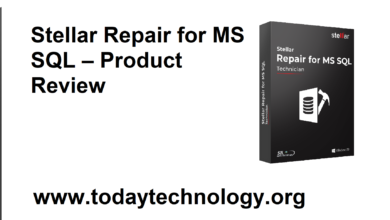
Key Takeaways:
- Essential for Accuracy: Clinical Documentation Improvement (CDI) is crucial in ensuring that patient care documentation is accurate and reflective of the actual services provided, impacting patient care and healthcare management.
- Improves Healthcare Operations: CDI enhances key operations such as coding accuracy, provider communication, and regulatory compliance, leading to more efficient healthcare delivery and improved patient outcomes.
- Relies on Technology and Training: Successful CDI programs integrate advanced technology and continuous education for healthcare providers to maintain documentation integrity and adapt to evolving best practices.
In the complex ecosystem of healthcare, ensuring the accuracy and integrity of medical records is more than just a procedural necessity—it’s a cornerstone of quality care and efficient management. Clinical Documentation Improvement (CDI) serves as a critical mechanism within this framework, focusing on enhancing the quality of healthcare records across the board.
That said, this blog post will explore the essential functions and benefits of CDI, discussing its influence on healthcare delivery, financial practices, and legal standards.
Table of Contents
Definition Of CDI
For those wondering, What is clinical documentation improvement it’s a crucial process in the healthcare industry that focuses on enhancing the accuracy and comprehensiveness of patient records. The primary goal of CDI is to ensure that medical records accurately reflect the clinical status, interventions, and outcomes of patients. This process involves healthcare professionals, often CDI specialists, who work closely with physicians, nurses, and other care providers to clarify and document all aspects of patient care effectively.
Key Components Of CDI
The effectiveness of CDI relies on several key components that work together to ensure that medical documentation is accurate, comprehensive, and fully representative of the patient care delivered. Here are the essential elements that constitute the backbone of a successful CDI program:
1. Accurate And Detailed Documentation
The foundation of CDI is the creation of precise and detailed clinical records that accurately reflect the clinical findings, assessments, and interventions. This documentation must include all relevant patient information, such as symptoms, diagnoses, treatment plans, and outcomes. This level of detail is crucial for all subsequent CDI processes and benefits all stakeholders involved in patient care and healthcare administration.
2. Trained CDI Specialists
Clinical documentation improvement programs require skilled professionals who understand both the clinical aspects of healthcare and the nuances of medical coding. These specialists, often nurses or other clinical staff with additional training in medical coding and documentation, are responsible for reviewing clinical records and ensuring that the documentation accurately captures the care provided.
3. Continuous Education And Training
Ongoing education and training for both CDI specialists and healthcare providers are critical. This ensures that all parties are up-to-date with the latest in clinical practice, documentation standards, and regulatory requirements. Training helps inculcate a culture of accurate documentation across the organization, which is essential for maintaining the integrity of CDI processes.
4. Integrated Technology
Technology plays a significant role in modern CDI programs. Electronic Health Records (EHRs) systems, specialized CDI software, and other data analytics tools help capture and analyze clinical data efficiently. These technologies facilitate real-time documentation reviews and updates, which can significantly improve the accuracy and timeliness of clinical documentation.
5. Quality Assurance Processes
Implementing quality assurance mechanisms ensures that CDI efforts meet the required standards and improve the quality reporting of clinical documentation. Regular audits, performance reviews, and adherence to best practices in CDI are necessary to evaluate the CDI program’s effectiveness and make necessary adjustments.
6. Data-Driven Insights
CDI programs should leverage the public health data collected through improved documentation for broader healthcare analytics and decision-making. This data can be used to track trends, measure the impact of clinical interventions, and inform strategic decisions within the healthcare organization.
Impact Of Clinical Documentation Improvement In Healthcare
CDI plays a crucial role in the healthcare industry by ensuring that the documentation of patient care is accurate, precise, and fully reflective of the scope and quality of care provided. This practice directly impacts numerous aspects of healthcare delivery and administration. Here are some key functions and benefits of CDI in healthcare:
Enhancing Patient Care
CDI is instrumental in accurately capturing a patient’s medical status and the details of the care they receive. By providing detailed and accurate documentation, CDI enables clinicians to make more informed decisions. This, in turn, leads to improved patient outcomes as treatments can be better tailored to the individual needs of patients.
Facilitating Accurate Coding And Billing
By improving the quality reporting of clinical documentation, CDI ensures that the medical coding accurately reflects the actual intensity of care provided. This precision is critical for appropriate billing, as it helps ensure that healthcare providers are reimbursed correctly and efficiently. Moreover, accurate documentation minimizes the chances of claims denials by insurers, which can delay or disrupt the billing process and affect the financial stability of healthcare providers.
Improving Healthcare Communication
Effective CDI practices enhance communication between various healthcare providers involved in a patient’s care. Clear and detailed documentation makes it easier for care teams to understand a patient’s medical history, ongoing treatment plans, and healthcare needs, particularly during transitions or handoffs in care.
Supporting Compliance And Quality Assurance
Proper documentation is essential for compliance with healthcare regulations and standards. CDI helps healthcare facilities adhere to legal, regulatory, and accreditation requirements, thereby avoiding potential legal issues and penalties. Reliable documentation is not only a regulatory requirement but also a safeguard against litigation and other legal challenges that might arise from an incomplete or inaccurate medical record.
Driving Revenue Integrity
Accurate and thorough documentation achieved through CDI supports appropriate reimbursement for the actual care provided, safeguarding the revenue integrity of healthcare organizations. This aspect of CDI is crucial for the financial sustainability of healthcare facilities, as it ensures that the services rendered are correctly billed and reimbursed without discrepancies that could lead to financial loss.
Enhancing Data Reporting And Analytics
High-quality clinical documentation is essential for reliable data analytics, which plays a pivotal role in improving healthcare quality, enabling effective public health reporting, and informing management decisions. With comprehensive and accurate data, healthcare facilities can undertake more effective quality improvement initiatives, monitor outcomes more precisely, and adjust practices better to meet the needs of their patients and the community.
Conclusion
As healthcare continues to evolve, the importance of CDI grows, with technology playing a pivotal role in its implementation and success. Ultimately, clinical documentation improvement is not just about creating a complete medical record; it’s about fostering a healthcare environment that is efficient, compliant, and focused on delivering high-quality care.





